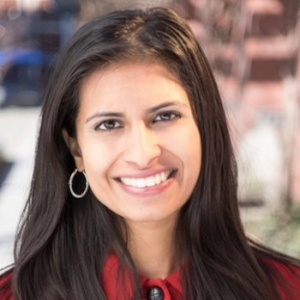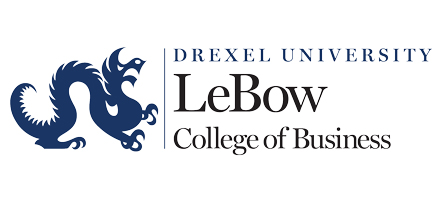
Stride Funding, which debuted on our list at No. 31, was one of 23 startups founded by MBAs from Harvard Business School. Courtesy photo
A DIVERSE LIST OF STARTUPS AT THE TOP
Following Gorillas is an impressive list of diverse startups across a wide array of industries. Interestingly, just one of the top five companies is headquartered in the United states.
- No. 2 Merama ($445 million), headquartered in Mexico City, is an e-commerce aggregator serving digital brands in Latin America, one of the fastest growing e-commerce regions in the world. It was founded by Harvard MBA Sujay Tyle who told TechCrunch that he believes several multi-billion dollar brands will be created in LatAm in the next five years. Its latest funding round was $60 million in December 2021.
- No. 3 Habi ($390 million), located in Bogotá, Colombia, jumped up 36 spots from last year’s list, buoyed by $75 million in debt refinancing in June. The leading real estate tech startup in Latin America, Habi was founded by Harvard MBA Brynne McNulty. It also happens to be the highest earning company on our list that was founded by a woman.
- No. 4 Klar ($257 million), headquartered in Mexico City, was founded by four Stanford MBAs – Jeronimo Reifkohl, Daniel Autrique, Gianluigi Davassi, and Stefan Moller. It’s also Stanford’s highest ranked startup this year, raising $90 million in its latest funding round in June and climbing five spots from last year’s list. The financial platform believed to be Mexico’s largest digital bank.
- No. 5 Pathway Homes ($250 million) is Stanford’s second company in the top five, founded by Kyle Ruane. It claims to offer a new path to homeownership by purchasing homes a customer likes and renting them back to customers until they are ready to buy at an agreed upon price. It is the only top 5 startup headquartered in the United States (Dallas, Texas).
Gorillas also joins an elite list of previous winners of our ranked MBA startups. Joining Sofi as one of the billion-dollar babies, it blew previous highest-funded startups out of the water: Wharton-founded Deliveroo raised $474.59 million at the time of publication of our 2017 list and Stanford’s Divvy raised $299 million on last year’s.
HARVARD, STANFORD STILL RULE THE STARTUP ROOST
The two schools with the most startups should be no surprise. Harvard Business School and Stanford Graduate School of Business have long dominated the MBA startup game, and their startups account for nearly two-thirds of this year’s list.

Tess Michaels, founder of Stride Funding
Of the 100 startups that attracted the most funding from angel investors and venture capitalists over the last five years, Stanford claims 43 – up from 39 in 2021. It is the highest number of startups from a single school, and it continues an upward trend for the school centered in the heart of Silicon Valley. Stanford posted 34 startups in 2020 and 39 in 2019.
Harvard Business School had the second most startups from MBA or EMBA founders at 23. That’s up from 19 last year which was the lowest number the school had had in the list’s history. In 2016, Harvard had 42 startups, but its numbers have fluctuated since, claiming between 21 and 26 per year.
“There’s no day where I’m not so grateful for the HBS experience,” Tess Michaels, Harvard MBA, founder of Stride Funding, told P&Q in this 2020 profile of her startup which has raised $45.7 million so far. Stride Funding offers more flexible payment options for expensive MBA programs through income share agreements. It debuts on this year’s list at No. 31.
“A lot of it is about the incredible amount of access that you get at HBS. We have a lot of connected people who have supported Stride, both advisers and investors. Those who have helped fund students have come from the HBS community, which has been really special,” she says. “As an entrepreneur, you’re surrounded by people but it can get lonely at times as you’re growing the business, and what HBS has really done is ensure that you’re learning from each other. And that’s the beauty of the accelerator: I’m walking through my learnings and so many of them are applicable for startups. I think that’s really, really cool that HBS has doubled down on that.”
INSEAD’s 7 startups was the third largest number for individual schools. That’s up from last year’s 5 startups and the most ever for a school not based in the U.S.

Peter Johnson, UC-Berkeley Haas
Following INSEAD, Columbia Business School, UC-Berkeley Haas and UCLA Anderson had 4 startups each while The Wharton School and Cornell’s SC Johnson College of Business had 3 apiece.
At UC-Berkeley, a third of the school’s electives focus on startups, Peter Johnson, assistant dean of full-time MBA programs, told P&Q in our Meet the MBA Class of 2023 series. The school’s four startups on our list – Kyte, Oishii Farm, Oxygen, and Vested – have raised more than 329 million since their founding.
“The tech sector has expanded from Silicon Valley to San Francisco to right at our doorsteps in Berkeley, placing Berkeley Haas at the core of the innovation economy. Simply put, Berkeley Haas is “the heart of what’s next.” We’re influencing industries that are inventing new technologies and business models that are driving economic growth,” Johnson says.
“Moreover, our students benefit greatly from having access to the best professors as well as executives and entrepreneurs from leading global companies in a variety of industries from consulting to high tech.”
TOTAL FUNDING TOPS $7 BILLION, THE MOST EVER
Last year, the total funding among all the 100 startups fell to the second-lowest level since 2015, as the economy grappled with the effects of the pandemic. Companies on the list raised $2.692 billion in 2021 with only 2018’s $2.455 billion coming in lower.
Funding roared back this year. The $7.123 billion raised by the 100 startups is the highest in the list’s history, blowing past the previous highest level of $5.180 billion in 2016. Of course, INSEAD’s Gorillas had a lot to do with that – its $1.335 billion is nearly 19% of the total raised on the entire list.
The list compiled in 2021 was the first in which the pandemic had impacted the economy for more than a year. That list tracked companies founded between January 1, 2016, and December 31, 2020.
Our 2022 list takes into account funding raised in 2021 as investing bounced back. However, that bounce back may be cooling as we enter a new period of global uncertainty.
“2021 was an amazing and overheated period for venture investing. Everyone in VC was talking about when the music will stop. The music indeed has stopped in 2022. This is impacting more the large funding. We still see that there is early-stage funding readily available. Founders are needing to pivot and pay much more attention to their path to profitability and conserving cash,” Zemsky says.
“While global venture funding has fallen slightly, that figure is still higher than levels seen before the pandemic.
“Another bright spot (at INSEAD) is the rise of corporate venture capital. Between 2010 and 2020, the number of corporate investors grew more than six times to over 4,000. Even as investment appetite cooled in quarter one this year, there were a record 1,317 CVC-backed deals.”
You can see evidence of 2021’s rebound from the astounding amount of money raised in the top 20 startups on the list. Those companies raised $5.178 billion, the third highest amount of all other years when all startup funding was calculated. Even without Gorillas $1 billion-plus funding, the other 19 top companies in 2022 outpaced 2021’s funding of all 100 companies by nearly $1.2 billion.
Last year, Divvy Homes’s $299.04 million in funding put it at the very top of the list. That wouldn’t even break the top three in 2022. In all, there were eight startups that raised over $200 million and another 11 companies that raised more than $100 million. In 2021, only five startups cracked $100 million.
Further, the funding cutoff to make our top 100 was $5.5 million last year, a milestone raised by Dexai Robotics. This year’s cutoff is $9.04 million, raised by Solytic, founded by ESADE MBA Johannes Burgard.
STANFORD STARTUPS RAISED $2.8 BILLION
This year, Stanford startups raised more than any other school by more than a billion. The Silicon Valley school raised $2.795 billion across its combined 42 startups, up from $1.431 across 39 startups last year.
It alone was in the billion-dollar club last year, but it is joined now by INSEAD ($1.677 billion across seven startups) and Harvard ($1.420 billion across its 23 startups). INSEAD had a combined funding total of $73.1 million last year while Harvard had $449.05 million.
Rounding out the top five schools this year are UC Berkeley Haas at $329 million across its four startups followed by $165 million across Wharton’s three.
Over the past eight graduating classes (2014 to 2021), Harvard Business School has had 603 MBA graduates report they’re starting their own companies within three months of graduation, according to the school’s employment reports. That’s more than any other school that we’ve been tracking. Up next is Stanford’s Graduate School of Business, which has had 530 MBAs, Wharton with 316, and Columbia with 165. Note that schools like HBS, Wharton, and CBS graduate hundreds more MBAs each year compared to schools like Stanford and MIT.
WHERE THE TOP MBA STARTUPS ARE BASED
On a percent basis, Stanford GSB – which enrolls about 420 MBAs per class compared to cohorts of Harvard and Wharton which are more than twice that size – produced the most MBA founders. This year, 18% of Stanford’s graduating class of MBAs elected to launch companies immediately after graduation. That’s down slightly from the 18.16% founders in the graduating class before it. After a 4% jump in founders at HBS a year ago, the school lost nearly that much ground this year. The number of its MBA founders dropped from 11.29% to about 8% in its latest class.
By location, the San Francisco Bay Area continues to be the most popular home base for top MBA startups. Of course, this is largely influenced by the number of Stanford MBAs on the list. Of the 100 top MBA startups, 27 are based in the San Francisco Bay Area. New York City is the next most popular base for our top MBA startups at 17 while the Boston area claims seven. This was the most international group of startups we’ve had on our list with 33 startups based outside of the U.S., up from 26 last year. Europe had seven, Mexico City had six, India had four, and Singapore and Brazil had three apiece.
NEXT PAGE: Women founders + INSEAD’s Entrepreneurial magic




